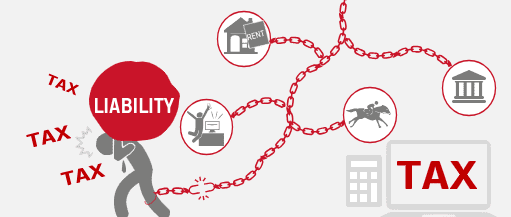A director is part of the collective group known as the Board of Directors, which is tasked with overseeing, managing, and directing a company’s operations. Directors act as trustees of the company’s assets and finances and serve as agents in transactions conducted on behalf of the company.
Directors are expected to carry out their responsibilities with due care, using the skill, knowledge, and experience expected of someone in their role. They take on various responsibilities within the company, including acting as an agent, employee, officer, and trustee.
Minimum and Maximum Number of Directors in a Company
The Companies Act, 2013 outlines the required number of directors for different types of companies:
- Public limited company: Minimum of 3 directors
- Private limited company: Minimum of 2 directors
- One-Person company: Minimum of 1 director
The maximum number of directors a company can have is 15, though this limit can be increased by passing a special resolution at a general meeting.

Types of Directors
Residential Director
As per the Companies Act, every company must have a director who has resided in India for at least 182 days in the previous calendar year. This director is referred to as the residential director.
Independent Director
Independent directors are non-executive directors who play a key role in enhancing corporate credibility and governance standards. These directors do not have any relationships with the company that could affect their independent judgment.
Independent directors serve a five-year term, but they can be reappointed through a special resolution, with the details disclosed in the Board’s report. For listed public companies, at least one-third of the board must consist of independent directors. Unlisted public companies must appoint at least two independent directors if they meet any of the following criteria:
- Paid-up capital of Rs. 10 crores or more
- Turnover of Rs. 100 crores or more
- Outstanding loans, deposits, and debentures of Rs. 50 crores or more
Small Shareholders Director
A listed company, upon receiving notice from either 1,000 small shareholders or 10% of the total small shareholders (whichever is lower), must elect a director to represent these small shareholders.
Women Director
Both private and public companies are required to appoint at least one woman director if they meet any of the following conditions:
- The company is listed on a stock exchange.
- The company has a paid-up capital of Rs. 100 crores or more, or a turnover of Rs. 300 crores or more.
Additional Director
A person can be appointed as an additional director and hold the position until the next Annual General Meeting (AGM). If the AGM does not take place, the term ends on the date the AGM should have been held.
Alternate Director
An alternate director is appointed by the Board to fill in for a director who will be absent from the country for more than three months.
Nominee Directors
Nominee directors are appointed by specific shareholders, banks, financial institutions, third parties through agreements, or the Union Government in cases of oppression or mismanagement.
Executive Director
An executive director is a full-time director responsible for overseeing the company’s daily operations. They play a crucial role and must act diligently in managing the company’s affairs.
Non-Executive Director
A non-executive director does not engage in the daily operations of the company but may participate in policy-making and strategic decisions, ensuring that the executive directors act in the best interest of the company.
Managing Director
A managing director is entrusted with significant management responsibilities, either by the company’s articles, an agreement, a resolution passed in a general meeting, or a decision by the board of directors.
Qualifications to Become a Director
Only a natural person can be a director, not an entity like a company or association. The following conditions apply:
- The person must be between 21 and 70 years old.
- They must be of sound mind and not an undischarged insolvent.
- The person should not have applied to be declared insolvent.
- They should not have been convicted and sentenced to imprisonment for over six months without a five-year gap since the sentence.
- There must be no court order disqualifying them from being a director.
- The person must have cleared all dues on shares held by them within six months of the payment deadline.
- They should not have been convicted under section 188 (related party transactions) in the past five years.
- The person must possess a Director Identification Number (DIN).
- They cannot be a director in more than 20 companies or more than 10 public companies.
Directorship is also restricted if:
- The company has failed to file financial statements or annual returns for three consecutive financial years.
- The company has failed to repay deposits, redeem debentures, or pay dividends for over a year.
Independent Director Qualifications
An independent director should have relevant expertise in areas like law, finance, management, or governance. Additionally:
- Their relatives should not owe money to the company or its affiliates.
- They should not have given guarantees for third parties in connection with the company’s debt exceeding Rs. 50 lakhs in the past two financial years or the current year.
The independent director must not:
- Be a promoter or related to the company’s directors or promoters.
- Have significant financial dealings with the company beyond their remuneration.
- Have held Key Managerial Personnel (KMP) roles or been an employee of the company in the three preceding financial years.
- Have been associated with audit firms, legal consultancy, or company secretarial services of the company in the past three years.
- Hold voting power exceeding 2% in the company.
- Be involved with a non-profit organization that receives 25% or more of its income from the company or holds more than 2% voting power.
Director’s Liabilities
A director’s liabilities arise from their role as officers or agents of the company, as well as their fiduciary duties to both the company and its shareholders. Since a company and its directors are legally distinct entities, directors generally do not bear personal liability for the company’s actions. However, there are specific situations where a director may be held accountable, including the following:
Tax Liability
Under the Indian Income Tax Act, if a private company fails to pay taxes owed from a previous financial year, and those taxes cannot be recovered from the company, the directors who held office during that year are jointly and severally responsible for the payment.

False Statements in the Company Prospectus
Directors can face civil liability for misstatements in the company’s prospectus if they were serving as directors when the prospectus was issued. However, they may avoid liability if they can prove one of the following:
- They withdrew their consent before the prospectus was issued.
- The prospectus was released without their knowledge, consent, or authority.
- Upon discovering the false information, they withdrew consent and made a public announcement to that effect.
- They genuinely believed the misleading statements were accurate at the time.
Company Debts
In general, directors are not personally responsible for the company’s debts unless it can be proven that they engaged in fraudulent conduct.
Fraudulent Business Practices
If a director knowingly participates in fraudulent activities while conducting business, they may be personally liable for the debts or other obligations incurred by the company as a result of the fraud.
Share Application Money Refund
Directors are personally liable, along with the company, to repay any share application money or excess share application funds received if these are not refunded within the legally required time frame.
Liability for Qualification Shares
If a director fails to obtain the necessary qualification shares within the specified time and the company goes into liquidation after this period, the director may be required to pay for those shares as demanded by the official liquidator.
Understanding the Concept of Lifting the Corporate Veil
The concept of “lifting the corporate veil” involves ignoring the company’s separate legal personality and examining the actions of the individuals, particularly the directors, who are in control. Essentially, when a company is used as a vehicle for fraudulent or dishonest activities, the individuals involved cannot hide behind the company’s separate legal status for protection.
In such cases, the court can “pierce” or “lift” the corporate veil, exposing the people behind the company and holding them personally accountable for their actions. This approach allows the court to bypass the company’s status as a distinct legal entity and ensure that those responsible fulfill their obligations. Contact us to learn more.
FAQ’s
Can a company appoint more than 15 directors?
Yes, a company can appoint more than 15 directors if it passes a special resolution to allow this.
Is it mandatory to appoint a director residing in India?
Yes, every company must have at least one director who resides in India for a minimum of 182 days during the financial year. A company incorporated in India cannot have only foreign directors.
Do all directors need a Director Identification Number (DIN)?
Yes, any individual wishing to be appointed as a director must apply for a Director Identification Number (DIN) from the Central Government. Existing directors are required to notify the company or all companies where they hold directorship of their DIN within one month of receiving it. The company must also inform the Registrar of Companies about the DINs of all its directors.
Who is not eligible to be a director of a company?
The following individuals are ineligible to be appointed as directors:
- Persons of unsound mind or undischarged bankrupts/insolvents, or those convicted of any offense.
- Persons disqualified by a court or Tribunal from serving as directors.
- Persons who have not paid any calls on shares they hold in the company, and six months have passed since the last date for payment.
- Persons convicted of offenses related to related-party transactions.
What are the responsibilities of directors?
Directors are responsible for:
- Setting the company’s strategic goals and policies.
- Monitoring progress toward achieving the company’s objectives.
- Appointing senior management.
- Being accountable for the company’s actions to stakeholders, such as shareholders.
What is the difference between executive and non-executive directors?
An executive director is involved in the daily management of the company and is a full-time employee. In contrast, a non-executive director is a board member without direct management responsibilities.
Table of Contents
Toggle
